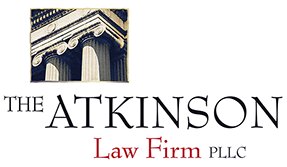Best Personal Injury Lawyers in North Carolina
Share your needs with us, get contacted by law firms.
Free. Takes 2 min.
Or refine your search by selecting a city:
List of the best lawyers in North Carolina, United States
About Personal Injury Law in North Carolina, United States
Personal injury law covers situations where a person suffers harm due to the negligence, recklessness, or intentional actions of another party. In North Carolina, personal injury cases commonly arise from car accidents, slip and fall incidents, medical malpractice, dog bites, and workplace injuries. The purpose of personal injury law is to help injured individuals recover compensation for medical expenses, lost wages, physical pain, emotional suffering, and other damages resulting from the incident. The legal process aims to restore victims, as much as possible, to the position they were in before the injury occurred.
Why You May Need a Lawyer
While some minor cases might be resolved without legal help, many personal injury claims can be complex and challenging to handle on your own. You may need a lawyer if:
- Your injuries are severe or permanent, requiring ongoing medical care or resulting in disability.
- There is a dispute over who is at fault for the injury-causing event.
- The insurance company denies your claim or offers a settlement that does not cover your losses.
- Multiple parties may be responsible for your injury.
- You are unfamiliar with the legal process, deadlines, or paperwork required.
- You need to gather evidence, interview witnesses, or consult with expert witnesses.
- The injury involves a government agency, such as a city or county vehicle accident.
- You want to ensure your rights are protected and maximize your compensation.
Local Laws Overview
North Carolina has several unique laws and principles that affect personal injury claims:
- Contributory Negligence: North Carolina follows the doctrine of pure contributory negligence. If you are found even one percent at fault for your own injury, you may be barred from recovering any compensation from the other party. This strict rule highlights the importance of having skilled legal representation.
- Statute of Limitations: You typically have three years from the date of the injury to file a personal injury lawsuit in North Carolina. Wrongful death cases have a two-year deadline. Missing these deadlines can mean losing your right to recover compensation.
- Damages Cap: In medical malpractice cases, North Carolina limits non-economic damages (such as pain and suffering) to a set amount, which is updated periodically to reflect inflation.
- Shared Fault and Insurance Rules: Because of the strict contributory negligence law, insurance companies often try to assign some fault to the injured person. North Carolina is also a "fault" state in auto accidents, meaning the at-fault driver’s insurance usually pays damages.
- Dog Liability: North Carolina has specific rules for dog bite cases. A dog owner may be held strictly liable if the dog was considered "dangerous" or had bitten before.
- Government Claims: Claims against government entities have special notice requirements and shorter deadlines. Seek legal counsel promptly if you believe a government agency is involved.
Frequently Asked Questions
What is considered a personal injury case in North Carolina?
A personal injury case arises when someone is physically, emotionally, or psychologically harmed due to another person’s negligence, recklessness, or intentional misconduct. Common examples include car accidents, slips and falls, defective products, and medical errors.
How long do I have to file a personal injury lawsuit?
Most personal injury claims must be filed within three years of the date of injury. For wrongful death cases, the deadline is two years from the date of death.
What is contributory negligence and how does it affect my case?
Contributory negligence means if you are even partially at fault for your injuries, you may not recover any compensation from the other party. North Carolina is one of the few states that follows this rule.
What types of compensation can I recover?
You may be eligible to recover compensation for medical expenses, lost wages, pain and suffering, emotional distress, property damage, and in some cases, punitive damages.
Do I need to hire a personal injury lawyer?
While not required, having a lawyer greatly increases your chances of successfully navigating the legal system, especially given North Carolina’s contributory negligence doctrine and the tactics insurance companies use to minimize payments.
How much does it cost to hire a personal injury lawyer?
Many personal injury attorneys work on a contingency fee basis, meaning you only pay them if you win your case or reach a settlement. The lawyer’s fee is usually a percentage of your recovery.
Will my case go to court?
Most personal injury cases settle without going to trial. However, if a fair settlement cannot be reached, your attorney may recommend and prepare for a court trial.
What should I do immediately after an accident?
Seek medical attention, document your injuries and accident scene, collect contact information from witnesses, and avoid admitting fault. Consult with a lawyer as soon as possible to protect your rights.
How does insurance affect my personal injury claim?
Insurance companies may attempt to limit or deny compensation. Any statements you make to insurance adjusters can impact your claim. It is advisable to let your attorney handle communication with insurers.
What if the at-fault party does not have insurance?
You may be able to recover damages through your own uninsured or underinsured motorist policy, or by pursuing a direct legal action against the responsible party.
Additional Resources
If you need more information or support regarding personal injury law in North Carolina, the following resources can be helpful:
- North Carolina Bar Association - offers lawyer referral services and legal information
- North Carolina Department of Insurance - assistance with auto and health insurance claims
- North Carolina Judicial Branch - access to court forms, processes, and locating courts
- North Carolina Industrial Commission - handles workers’ compensation claims
- Legal Aid of North Carolina - free or low-cost legal help for those who qualify
Next Steps
If you believe you have a personal injury claim in North Carolina, consider the following actions:
- Seek prompt medical attention for your injuries and follow all treatment recommendations.
- Gather evidence, such as accident reports, photographs, witness information, and medical records.
- Avoid discussing fault or details of your case with insurance adjusters before consulting a lawyer.
- Write down your account of what happened, including dates and details, while your memory is fresh.
- Contact a qualified personal injury attorney to review your case, explain your rights, and discuss potential outcomes.
Taking timely action and seeking experienced legal advice are crucial steps in protecting your rights and maximizing your chances for a fair recovery under North Carolina law.
Lawzana helps you find the best lawyers and law firms in North Carolina through a curated and pre-screened list of qualified legal professionals. Our platform offers rankings and detailed profiles of attorneys and law firms, allowing you to compare based on practice areas, including Personal Injury, experience, and client feedback.
Each profile includes a description of the firm's areas of practice, client reviews, team members and partners, year of establishment, spoken languages, office locations, contact information, social media presence, and any published articles or resources. Most firms on our platform speak English and are experienced in both local and international legal matters.
Get a quote from top-rated law firms in North Carolina, United States — quickly, securely, and without unnecessary hassle.
Disclaimer:
The information provided on this page is for general informational purposes only and does not constitute legal advice. While we strive to ensure the accuracy and relevance of the content, legal information may change over time, and interpretations of the law can vary. You should always consult with a qualified legal professional for advice specific to your situation.
We disclaim all liability for actions taken or not taken based on the content of this page. If you believe any information is incorrect or outdated, please contact us, and we will review and update it where appropriate.
Browse personal injury law firms by city in North Carolina
Refine your search by selecting a city.

















